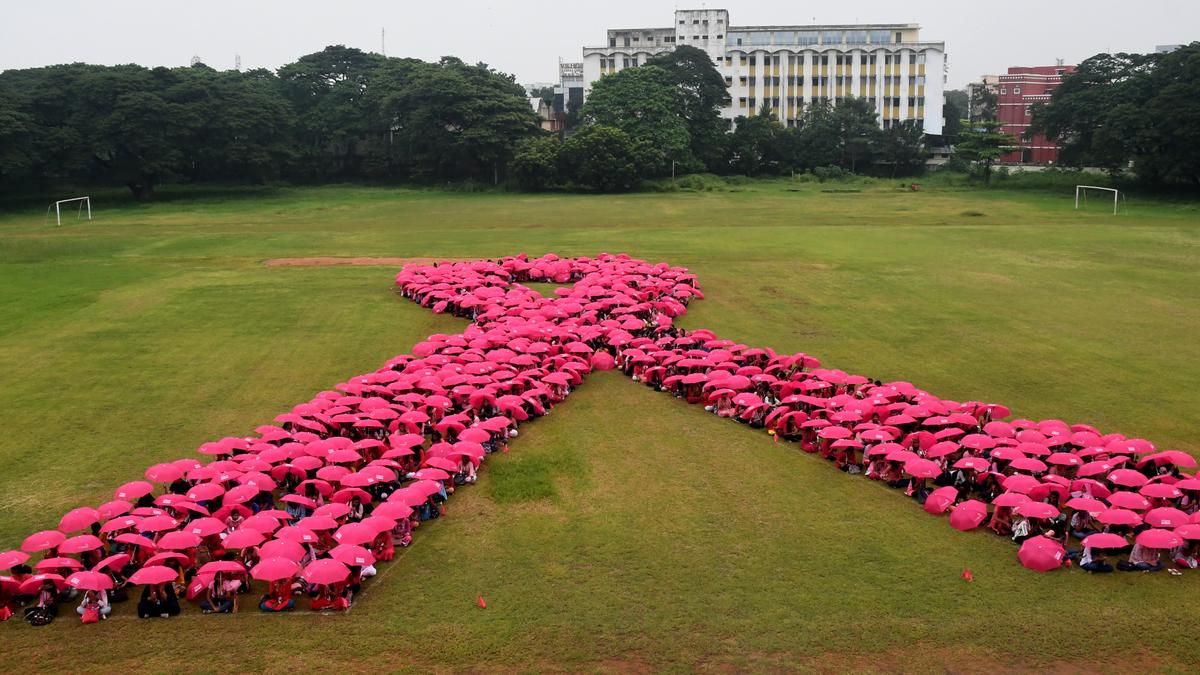
News
October 19, 2025
The changing face of breast cancer: why more young Indian women are at risk
Long associated with women over 50, breast cancer is no longer a disease that afflicts older age groups alone. Recent data points to a substantial number of cases being diagnosed in women aged under 40
**The changing face of breast cancer: why more young Indian women are at risk**
Breast cancer, a disease historically linked with women over the age of 50, is increasingly affecting a younger demographic in India. Recent health statistics reveal a concerning trend: a significant rise in the number of breast cancer diagnoses among women under 40. This shift presents new challenges for healthcare professionals and necessitates a greater understanding of the factors driving this change.
For decades, public health campaigns and research efforts have focused on screening and treatment strategies tailored primarily for older women. However, the growing incidence of breast cancer in younger Indian women demands a reassessment of these approaches. Doctors are observing that younger patients often present with more aggressive forms of the disease, making early detection and timely intervention even more crucial.
While the exact reasons behind this concerning trend remain under investigation, several potential contributing factors are being explored. Lifestyle changes, including dietary habits and decreased physical activity, are suspected to play a role. An increase in processed food consumption and a sedentary lifestyle, more prevalent in urban areas, could be influencing hormonal imbalances and increasing cancer risk.
Furthermore, delayed childbearing and lower breastfeeding rates are also being considered as potential contributing factors. Pregnancy and breastfeeding have protective effects against breast cancer, and their decline in modern lifestyles may leave younger women more vulnerable. Genetic predisposition also plays a significant role, and family history of breast cancer is a known risk factor.
The rising incidence of breast cancer in younger women underscores the need for increased awareness and early detection programs specifically targeted at this age group. Regular self-exams, clinical breast exams, and potentially earlier screening mammograms, as recommended by healthcare professionals, can aid in early diagnosis and improve treatment outcomes. Public health initiatives are now focusing on educating young women about breast cancer risks, promoting healthy lifestyles, and encouraging early detection practices. Addressing this evolving health challenge requires a multi-pronged approach, combining research, education, and accessible healthcare services to protect the well-being of younger Indian women.
Breast cancer, a disease historically linked with women over the age of 50, is increasingly affecting a younger demographic in India. Recent health statistics reveal a concerning trend: a significant rise in the number of breast cancer diagnoses among women under 40. This shift presents new challenges for healthcare professionals and necessitates a greater understanding of the factors driving this change.
For decades, public health campaigns and research efforts have focused on screening and treatment strategies tailored primarily for older women. However, the growing incidence of breast cancer in younger Indian women demands a reassessment of these approaches. Doctors are observing that younger patients often present with more aggressive forms of the disease, making early detection and timely intervention even more crucial.
While the exact reasons behind this concerning trend remain under investigation, several potential contributing factors are being explored. Lifestyle changes, including dietary habits and decreased physical activity, are suspected to play a role. An increase in processed food consumption and a sedentary lifestyle, more prevalent in urban areas, could be influencing hormonal imbalances and increasing cancer risk.
Furthermore, delayed childbearing and lower breastfeeding rates are also being considered as potential contributing factors. Pregnancy and breastfeeding have protective effects against breast cancer, and their decline in modern lifestyles may leave younger women more vulnerable. Genetic predisposition also plays a significant role, and family history of breast cancer is a known risk factor.
The rising incidence of breast cancer in younger women underscores the need for increased awareness and early detection programs specifically targeted at this age group. Regular self-exams, clinical breast exams, and potentially earlier screening mammograms, as recommended by healthcare professionals, can aid in early diagnosis and improve treatment outcomes. Public health initiatives are now focusing on educating young women about breast cancer risks, promoting healthy lifestyles, and encouraging early detection practices. Addressing this evolving health challenge requires a multi-pronged approach, combining research, education, and accessible healthcare services to protect the well-being of younger Indian women.
Category:
Technology